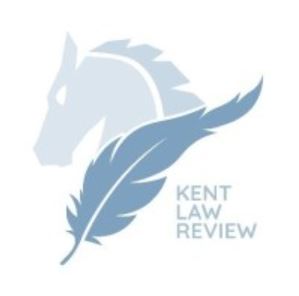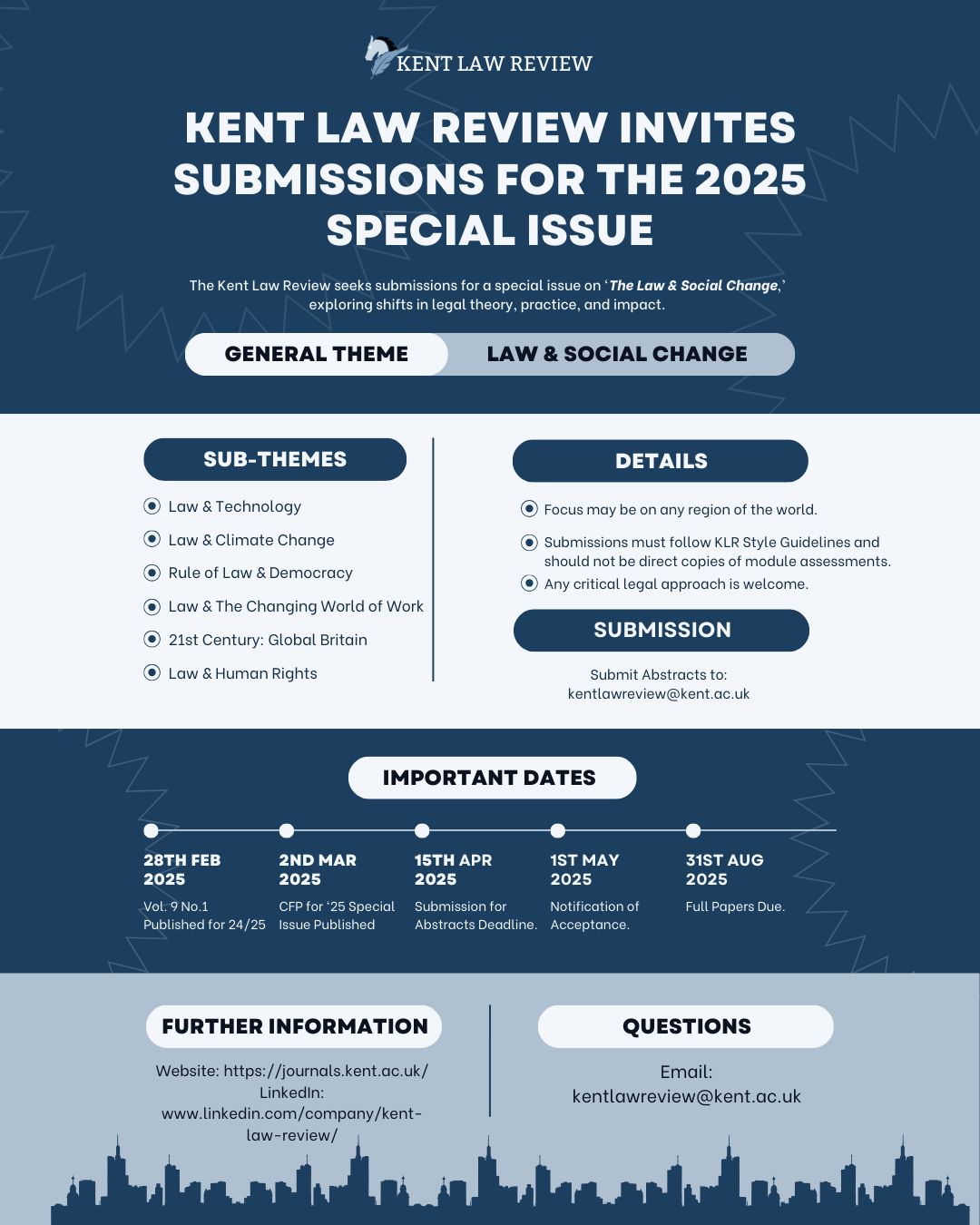In early March, Kent Law Review announced our publication of Issue #9, Unveiling New Perspectives in Law. This edition features exciting pieces covering a breadth of topics. This volume features pieces that analyse contemporary cases as well as prominent social issues, including papers concerning gender, migrant rights, and housing.
Sharon Abraham’s piece provides readers a critical analysis of Bebb v Law Society [1913] a landmark ‘persons’ case concerning the right for women to be admitted as Solicitors to the Supreme Court of the UK. Hazel Lincy Ebenezer explored domestic violence in India during the COVID-19 pandemic. Jessica Kearney Tourney’s piece critiques the 2022 Proposed Screening Regulation 148. Using a neoliberal lens, Tereza Koshi explored the legislative and policy responses to homelessness in the UK. Monique McIntosh examined how social movements utilize the law, and Kyriakos Trigonis discusses a socio-legal approach to International Economic Law.
Along with the new volume, KLR has released its Call for Papers for its next special issue, Law and Social Change. We are excited to encourage students to submit abstracts for papers related to the broad theme of law and social change. We believe that this theme is intimately tied to Kent Law School’s long tradition of a critical approach to the law and our collective involvement in and passion for social issues. Students can submit papers on sub-themes such as (but not limited to): law and technology, climate change, rule of law and democracy, the world of work, and human rights. KLR encourages students to be critical, creative, and innovative in their work. This issue is about going beyond the letter of the law to thinking about how the law is lived, experienced, and contributes to change.
KLR features work by Bachelor and Masters’ students from Kent law School, the University of Kent, Kent Alumna and beyond. KLR is an open access journal and is proud to support ensuring that research is freely available to the public. We believe that when knowledge is accessible it can facilitate a greater global exchange of knowledge with reduced barriers.
Prepared by Lauren Montgomery (Law (Senior Status) LLB finalist) and Kate Tantuico (Law LLM finalist).


